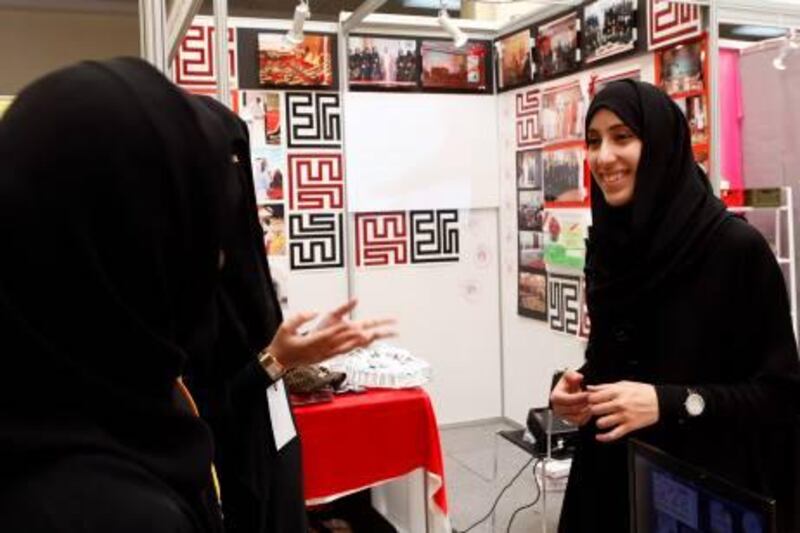ABU DHABI // As well as being the elected male and female presidents of the national student body, Mohammed and Hajer al Khanji have something else in common - they are brother and sister.
Founded in 1981, the Emirates National Student Association addresses academic and social issues, from concerns about curricula to the price of meals on campuses.
It also looks at broader topics, from the importance of Arabic to the Palestinian conflict, as well as advocating volunteer work and social responsibility.
The al Khanjis are both passionate about the responsibilities that come with their respective positions.
The association, Mohammed said, a 25-year-old engineering management student at the University of Wollongong in Dubai, helps students' voices be heard by the people who make the big decisions that affect their lives.
Sheikh Nahyan bin Mubarak, the Minister of Higher Education and Scientific Research, meets members of the association monthly, and Sheikh Hamdan bin Mohammed, the Crown Prince of Dubai, recently funded two scientific trips for members of the association.
"Our main goal is to serve students, to address their concerns and take them to Sheikh Nahyan and the different leaders," Mohammed said. "We are trying to help the UAE as it's developing."
Even before Hajer went to university, she had watched her brother become increasingly engaged in campaigning.
"I had a background from him and saw him working at home on projects," she said. It inspired her to get involved - although their roles are very different.
She is particularly interested in the issue of maternity leave, a concern for students because many Emirati girls are married by the time they start university. The choice between education and motherhood is one they should not have to make, she insists.
While companies have to give new mothers 45 days off, no such requirement applies to students. Typically, they take just a week out of their studies.
Campus food prices are a big issue for students, too. "They spend all day there and eat two meals, and many say their budget isn't covering the cost of food," said Hajer, a final-year architectural engineering student at UAE University. She is embarking on a project to investigate food prices at campuses around the country.
The efforts of the al Khanjis and others like them are appreciated by the university hierarchy, especially in the context of youth involvement in the protests that have flared up in other countries around the region.
"Students have to play an important role in shaping their society, especially when the population is young, like here," said Professor Abdul Sabouni, the vice chancellor of Al Hosn University in the capital.
His institution has a number of student associations, including a recently founded chapter of the Emirates National Students Association.
Giving students freedom of speech and choice, he said, will help them play a more constructive role in society.
"They will be players rather than dissidents, because they are part of the game," Prof Sabouni said, "and this can only be by maintaining the freedom the students have in universities."
Youssif al Jabri, 22, is the president of the American University of Sharjah's student council. Elected by students, he said his biggest challenge so far has been persuading doubters to fall in line with the university's decision to become the country's first smoke-free campus.
He and his team are campaigning for a week's study leave for final-year students, a subject that is particularly close to his heart. "We finish on a Thursday and start our exams on the Saturday," he said. "Students need time to prepare."
Without the student council, individuals would feel powerless, he said. "As individuals, they can't reach the top administration. It's up to us to reflect their needs."
The associations also serve a more direct purpose, according to Nadia Khoury, a third-year student at Gulf Medical University who formed the Pharmacy Students Association last year. It already has members from several institutions including Ajman University and Dubai Pharmacy College.
"It's a great way to share knowledge, academically and professionally," she said. "We are connecting students with employers, so it's a great networking tool for us."
Rory Hume, the provost of UAE University, recognises that the associations are an important part of student life. "It's better for students to meet together and know they will be listened to," he said.






